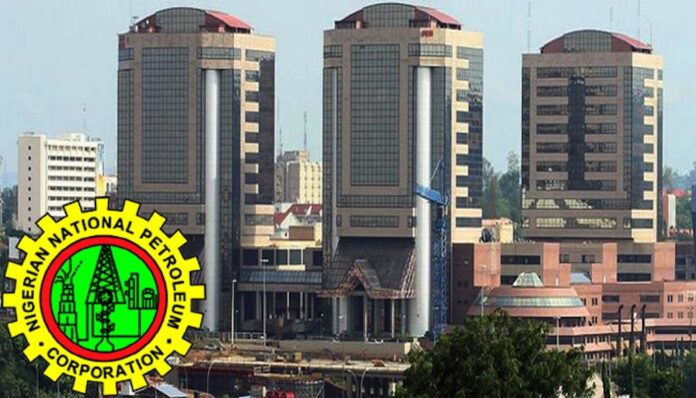Abuja, July 21, 2023: High-level sources in NNPC Ltd. have come out in full force, to explain the operations of the company against the backdrop of “blatant misinformation’’ on the activities of the firm.
The gesture is aimed at facilitating better understanding of the activities of the 46-year-old energy giant.
A source in the company said that the essence of the explanation was to highlight some knotty issues that had been misunderstood or misinterpreted by some institutions, individuals and stakeholders in recent years.
On the recent allegation by the Nigeria Extractive Industry Transparency Initiative that Nigeria lost N16.25 trillion to oil theft in the 12 years to 2021 and that the NNPC should quit the downstream, the source dismissed the allegation, saying that oil theft had been a major issue in Nigeria for decades.
“In 2022, production levels fell below one million barrels a day, owing to shut-ins to curtail theft. This denied Nigeria the opportunity to benefit from the rise in crude oil prices.
“But an industry-wide security apparatus launched in 2022, backed by the establishment of the command-and-control centre helped change our trajectory for the better.
“We revamped crude oil production from as low as 900 thousand barrels a day to over 1.6m barrels a day in less than a year.
“And, despite the losses recorded within this period, NNPC Ltd. has continued to meet its obligations to contractors working on major projects and the Federal Government through taxes, ’’ the document stated, in a rare opening up on the activities of the firm.
The source also gave an insight on allegations that Nigeria imported petrol with $11.3 billion in 2021 and that the total annual import bill for all refined products had soared to $28 billion.
The source dwelt further on the allegation made by some analysts and lawmakers that subsidy bill was N3.7 trillion from January to June 2023 and that in 2011, Nigeria `scandalously’ incurred N2.53 trillion on subsidies for real and fictitious products.
Describing the allegations as malicious accusations, the source noted that ongoing reconciliation of the company’s financial transactions would eventually reveal the truth.
“The validation of import and evacuation is done by the Nigerian Midstream and Downstream Petroleum Regulatory Authority (NMDPRA). Those in doubt should reach out to the regulator or carry out a forensic audit.’’
The source also commented on allegations by oil industry experts, who are complaining that the NNPC is the only major oil company in the world that sells all its crude through middlemen, fuelling illegal arbitrage and corruption as well the company maintaining secret accounts.
According to the source, a new trading company, known as NNPC Trading Ltd. has been established to manage sale of crude oil.
“NNPC as an oil company, owns refineries and a trading arm where you can buy and sell.
“When trading, you can sell to an end-user, which is the refinery and you can decide to sell to someone who can resell to an international company.
“That’s the beauty of buying and selling where you can even take advantage of arbitrage. You as a trader can hedge.
“For instance, if OPEC had said last month that they had decided to curtail volume among OPEC plus producers; as a trader you can now envisage that when it comes close to winter there will be high demand because of heating oil.
It said: “If today as a national oil company I decide to set aside a certain quantity for my refinery and produce some more, I can hedge and trade it for future demand and prices.
“Instead of selling at $80 today, if it will sell at 120 in three months, I could just hedge. People misuse the term middlemen without proper understanding.
“International oil companies like Aramco, Pantamina and even BP reach out to us to come and bid for their cargoes. They also reach out to buy. It’s a willing buyer, willing seller arrangement.
“So we sell crude to our local traders who are also into the business.
“Considering the trade terms, if I were to sell to an end-user with a refinery in Spain, if the terms of payment are not favourable to me, like late payment, which will affect my delivery to shareholders, if I find a Nigerian company willing to pay me in 30 days, I will sell to the Nigerian company and pay my obligation to shareholders.
“This arrangement is probably what they mistake as middlemen,’’ the NNPC source explained.
On calls that President Bola Tinubu should privatise the refineries speedily as the lack of domestic refining was the main cause of the subsidy regime and to foster competition in the downstream the source argued said that NNPC Ltd.’s management was not averse to privatisation.
“We need to bring it back to operational levels to avoid selling it as scrap. The PIA has also said the company would be sold to Nigerians through public offering,’’ the document stated.
The source also commented on allegations that Chinese contractors abandoned the Ajaokuta-Kaduna-Kano Natural Gas Pipeline project, owing to inflation in contract figures.
It explained that the project was initially approved at $2.8 billion and that following the refusal of the Chinese to finance the project, owing to the country’s limitation on external exposure, the NNPC re-engaged OILSERV and Brentex, to convert the contract from BOT to EPC, leading to re-negotiation of the contract to $2.5 billion.
According to the source, the renegotiation of the contract saved some $300 million for Nigeria.
“Since then, NNPC has been funding the contractors with its cash flow to the tune of $1.2 billion.
“The project and construction work has not stopped for one day and out of 614 kilometres of pipes to be covered, 460 kilometres have been welded so far.’’




